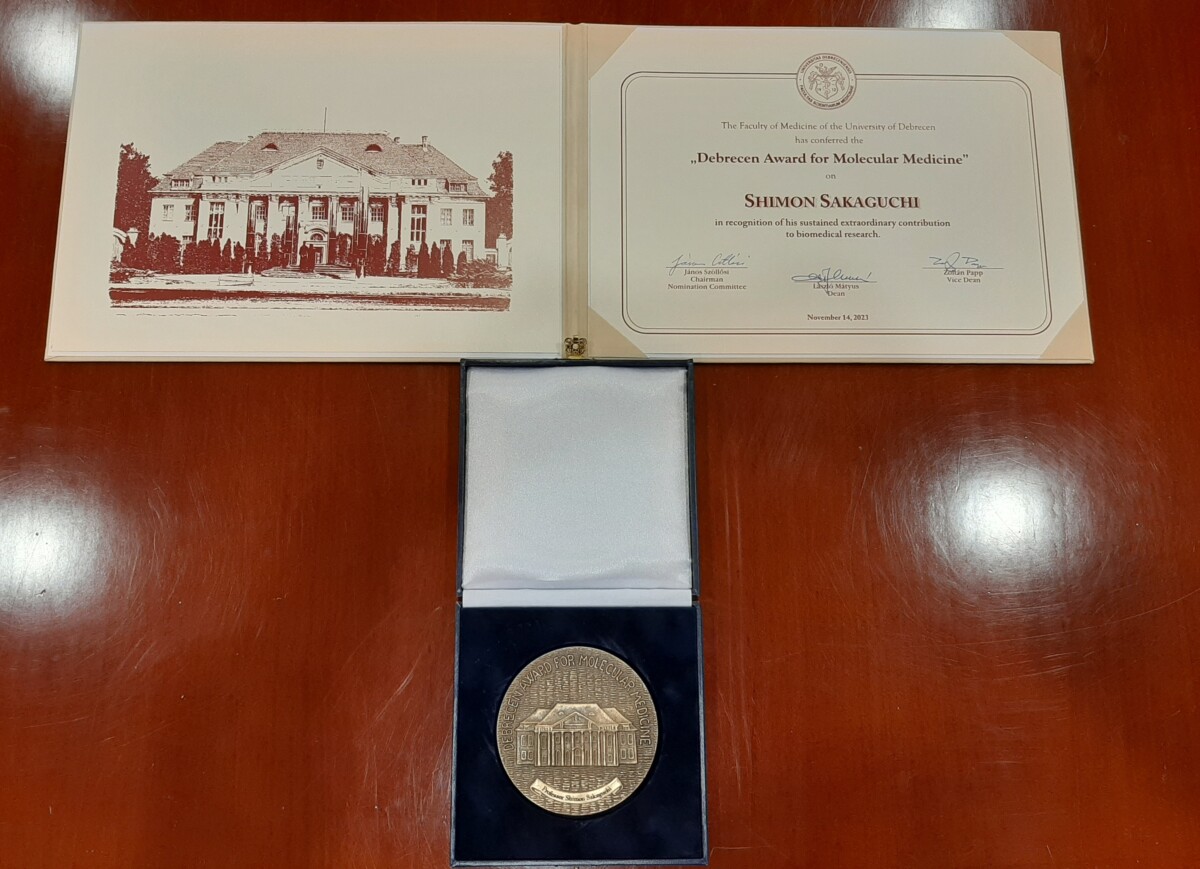Based on the decision of the faculty of the Faculty of Medicine of the University of Debrecen, the 2023 recipient of the “Debrecen Award for Molecular Medicine” is Professor Shimon Sakaguchi.
The “Debrecen Award for Molecular Medicine” was established in 2003 to recognize the work of scientists who have achieved outstanding results in the field of molecular medicine at the international level. Among the awardees chosen annually by the professors of the Faculty of Medicine of the University of Debrecen, there are prominent figures in the field of life sciences, such as Craig Venter, the apostle of the study of human genetic material, who – after the Debrecen Prize – also received the Nobel Prize for the discovery of dendritic cells, considered the conductor of the immune system Ralph Steinman was awarded the 2014 Sir Stephen O’Rahilly prize for discovering the genetic mechanisms responsible for obesity, and Katalin Karikó, who was awarded the Nobel Prize in 2023.
This year’s awardee is Professor Shimon Sakaguchi, a distinguished professor at the Immunology Research Center of Osaka University. Professor Sakaguchi received his medical degree in 1976 and his Ph.D. scientific degree in 1982 at Kyoto University, where he also received training in pathology and immunology. After that, he did postdoctoral studies at Johns Hopkins and Stanford University in the United States. He returned to Japan in 1991, where he developed his research first in Tokyo, then in Kyoto, and from 2011 at Osaka University. Professor Sakaguchi and his colleagues study the molecular and cellular mechanisms of immunological tolerance and immune regulation.
From the point of view of maintaining health, it is essential that our immune system can distinguish between our body’s own cells and invading pathogens (e.g. bacteria, viruses) or pathological cell types (e.g. tumor cells) that threaten it. Fortunately, this distinction effectively protects us from infections and the development of cancerous diseases. However, if the immune defense cannot differentiate properly, it can even damage healthy cells, cause allergies, and e.g. cause inflammatory bowel disease. The immunological tolerance shown against one’s own cells and their regulation is therefore of decisive importance. Professor Sakaguchi is best known for the discovery of a type of white blood cell with a regulatory function, the so-called regulatory T-lymphocytes (Treg), and for elucidating their role in the immune system. He investigated the molecular basis of the formation and function of regulatory T cells. He showed that the lack of regulatory T cells in the immune system, which restrain the immune response, or the reduction of their function is the cause of many immunological disorders, including autoimmune diseases. In addition, Professor Sakaguchi and his laboratory have shown that increasing the number of regulatory T cells or strengthening their suppressive activity can prevent and treat autoimmune diseases, as well as establish stable tolerance to transplanted organs while reducing their number or suppressive activity can trigger effective immunity against cancer. His discoveries can be used mostly in the treatment of autoimmune diseases and cancer. Professor Sakaguchi is currently investigating how, under clinical conditions, regulatory T cells can be used in a targeted manner in humans to regulate various physiological and pathological immune responses. His discoveries can also help develop new drugs targeting attack points.
Professor Sakaguchi plays an active role in the organization and management of scientific research in Japan: currently and in the past he has held leading positions in numerous scientific organizations and boards. Among the prizes he has won are numerous prestigious scientific awards and honorary doctorate titles. Professor Sakaguchi has so far published more than 300 scientific papers, which have been cited in an exceptionally large number, more than 126,000 times.


















